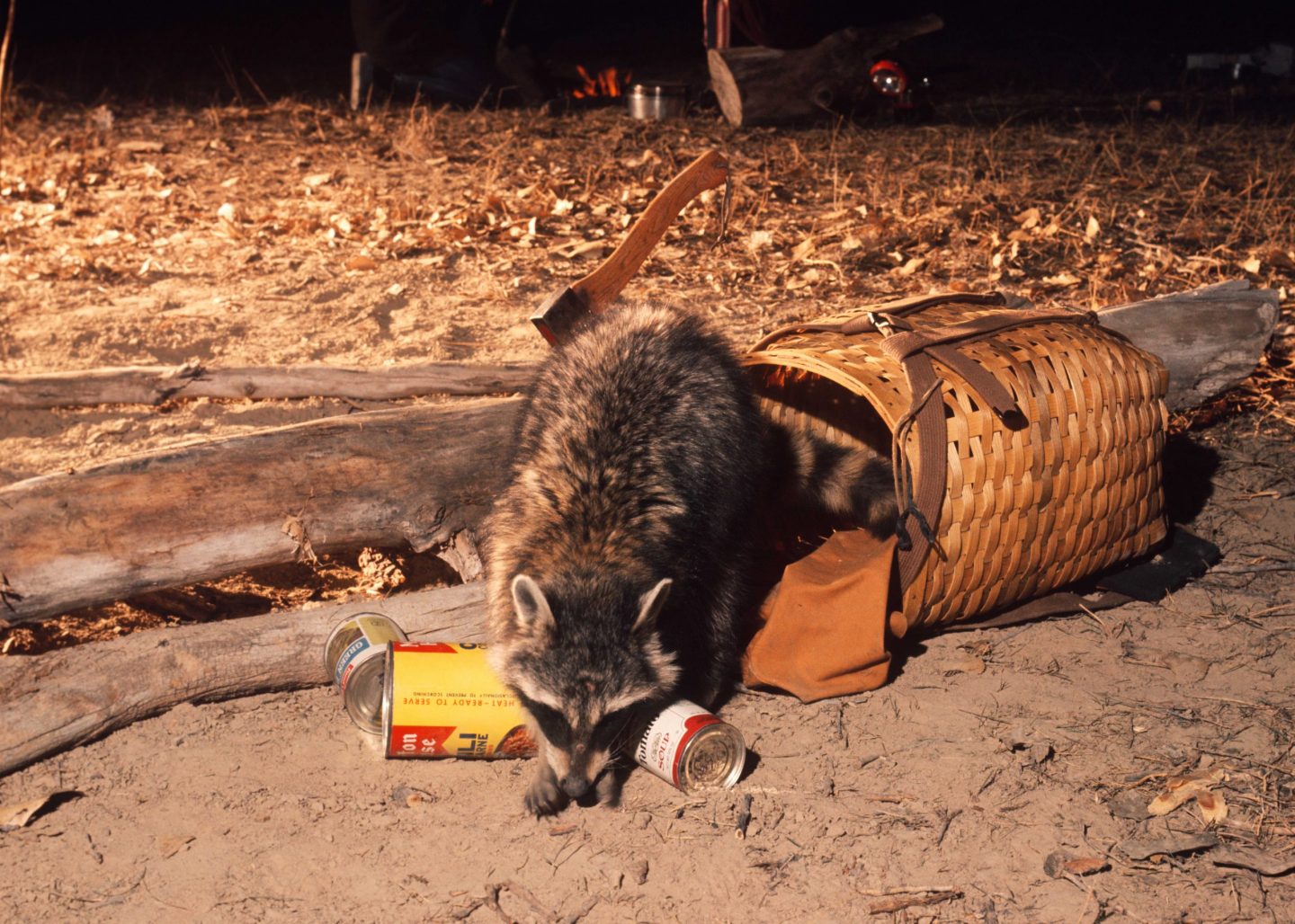
By Monica Macoubrie, Wildlife Education Specialist
There’s nothing quite like unzipping your tent in the early morning and smelling the dew on prairie grass and hearing the distant call of a western meadowlark. And maybe — if you’re lucky — there might be a set of deer tracks leading past your site.
Camping in Nebraska means sharing space with some truly incredible wild neighbors. Whether you’re pitching a tent along the Niobrara River, stargazing in the Sandhills or nestled in a cottonwood pocket along the Missouri, it’s important to know what critters you might encounter — and how to be a respectful guest in their home.
Expect Company, Even If You Don’t See Them
First things first: You’re not alone out there. From raccoons and owls to bullsnakes and bats, wildlife is active all around you, especially once the sun starts to dip. Many of Nebraska’s critters are nocturnal, or crepuscular, meaning they come alive during the hours around dawn and dusk. So, while you’re toasting marshmallows or settling into your sleeping bag, the forest, prairie or riverbank around you is just starting to wake up.
You might hear rustling in the brush, the deep hoot of a great horned owl perched in a cottonwood, or the distant, high-pitched yip of a coyote echoing across the hills. These sounds can be thrilling — or a little unnerving if you’re not used to them. They’re all part of the Nebraska wild experience. It’s like nature’s nighttime soundtrack, reminding you that even if you can’t see your wild neighbors, they’re definitely out and about.
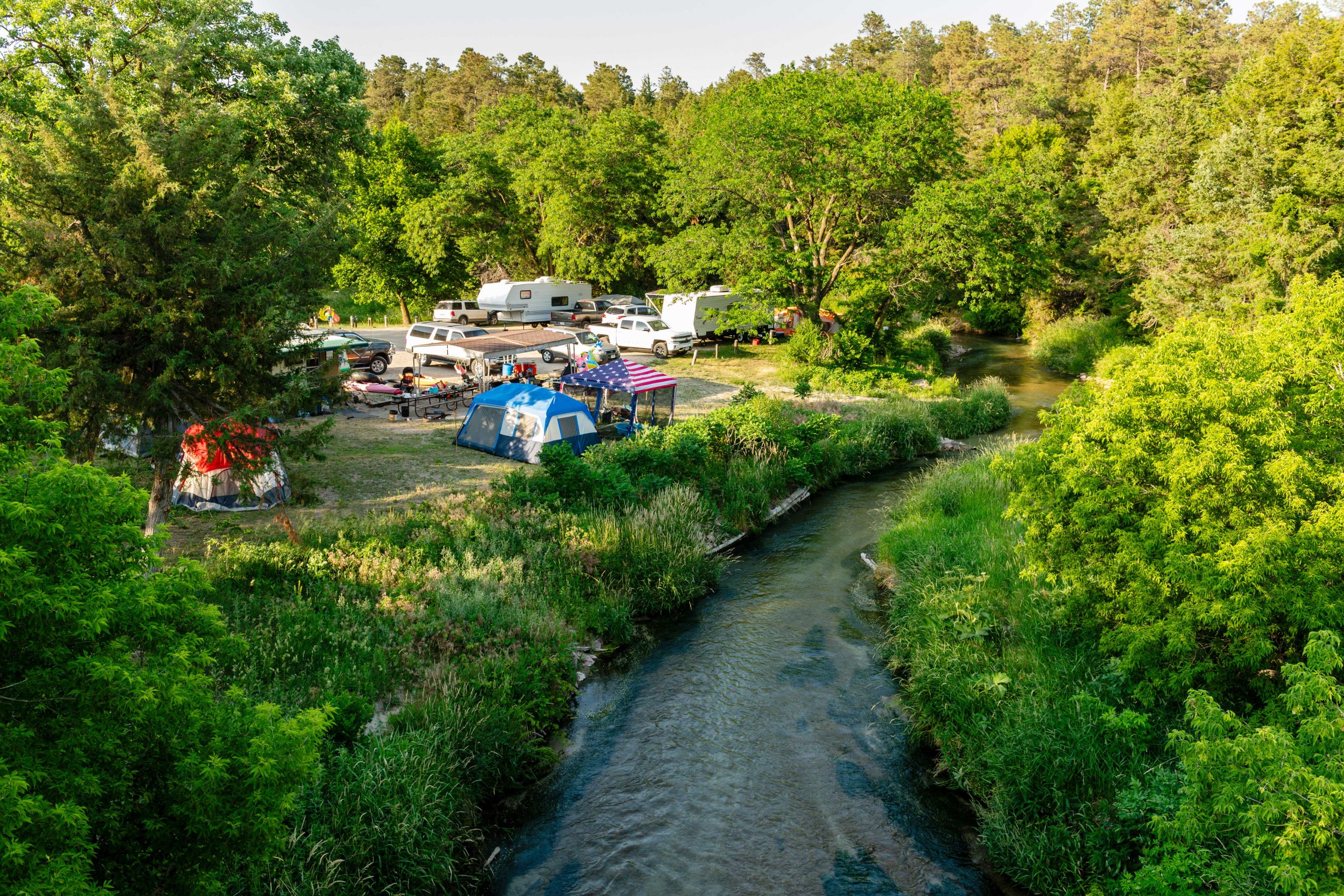
And let’s not forget the smallest — sometimes most noticeable — creatures: insects. Mosquitoes are a given during summer months, especially near water or after rain, and Nebraska ticks are tenacious little hitchhikers, so checking yourself (and your dog) after a hike is necessary. Horseflies, especially out west or in wet meadows, are surprisingly bold — and if you’ve met one, you know what I mean. Long sleeves, bug spray and a good sense of humor go a long way.
The takeaway? Wildlife is all around you, from the tiniest tick to the clever raccoon sneaking around your camp at night. Expect company — and treat them with curiosity and respect.
Store Your Food
If there’s one guaranteed way to attract a curious raccoon, a sneaky opossum or even a bold skunk, it’s leaving your food out overnight. Nebraska’s wild animals have incredibly keen senses of smell — some can detect food from quite a distance. And once they associate campsites with easy meals, they tend to return for more.
To avoid midnight visitors rustling through your marshmallows and granola bars, always store your food in tightly sealed containers, preferably in your vehicle. Coolers alone aren’t always enough — raccoons are shockingly clever and strong, and they’ve been known to undo bungee cords, open lids and even unzip tents.
Speaking of tents, never store food inside one. Even empty wrappers, toothpaste or the faint scent of snacks can invite a late-night rummaging.
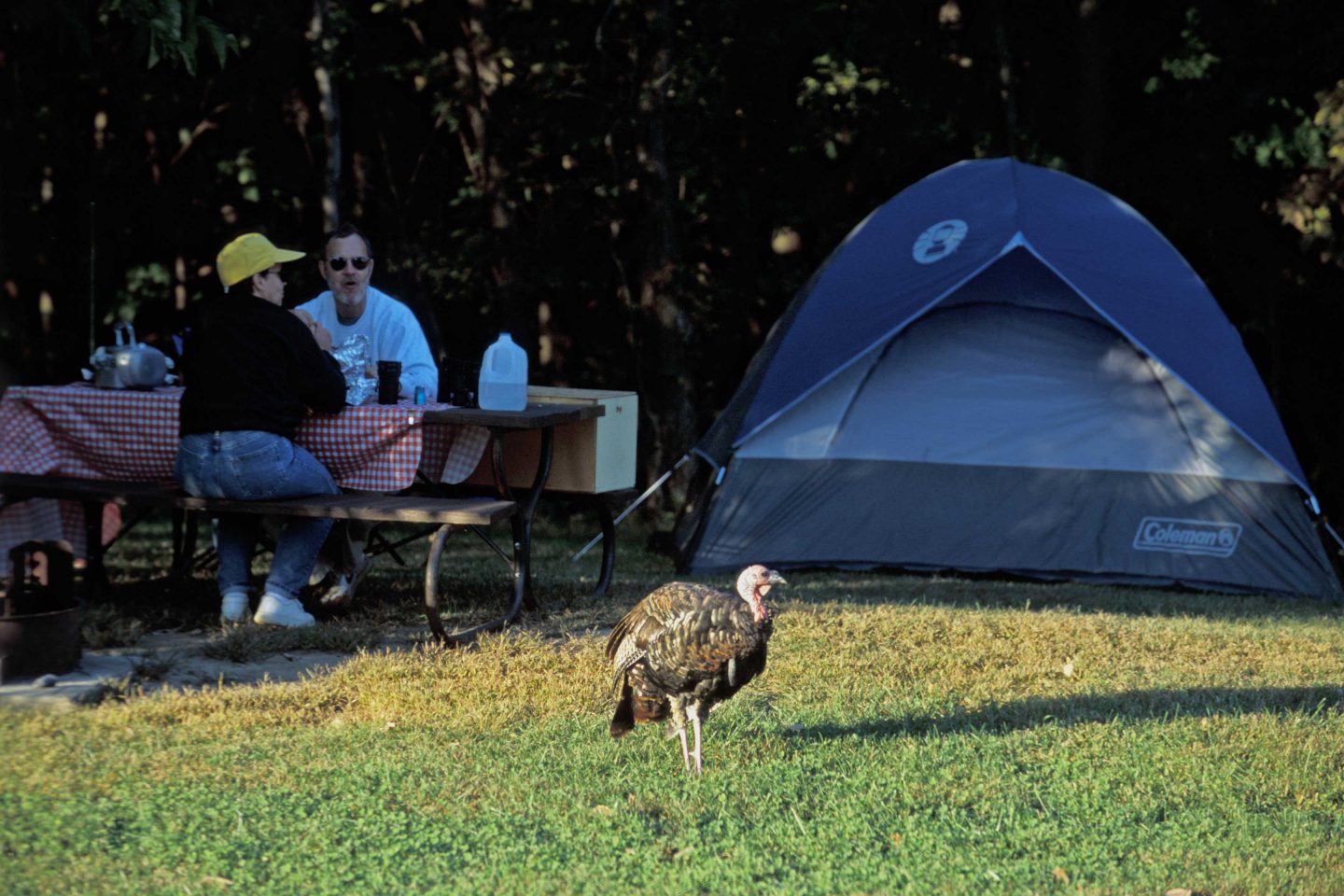
Also, don’t forget about pet food. If your dog is tagging along, feed them away from your sleeping area and clean up immediately afterward. Dirty bowls, crumbs and half-eaten biscuits are fair game to a hungry critter.
Keeping a clean campsite not only protects you and your belongings, but also protects wildlife. When animals learn to seek food from humans, it can lead to conflict, dependence or dangerous behavior. Storing your food properly is one of the simplest ways to show respect for Nebraska’s wild residents.
Don’t Feed the Wildlife (Even If They’re Cute)
I know, it’s tempting. A fox squirrel scurries up to your picnic table and gives you those pleading eyes. But feeding wildlife — intentionally or accidentally — can have serious consequences. Animals that become habituated to humans can lose their natural fear, get aggressive or become reliant on unnatural food sources. In some cases, it can even lead to relocation or euthanasia of the animal. So, as hard as it is, keep your snacks to yourself. Watching wildlife act wild is a much more rewarding experience.
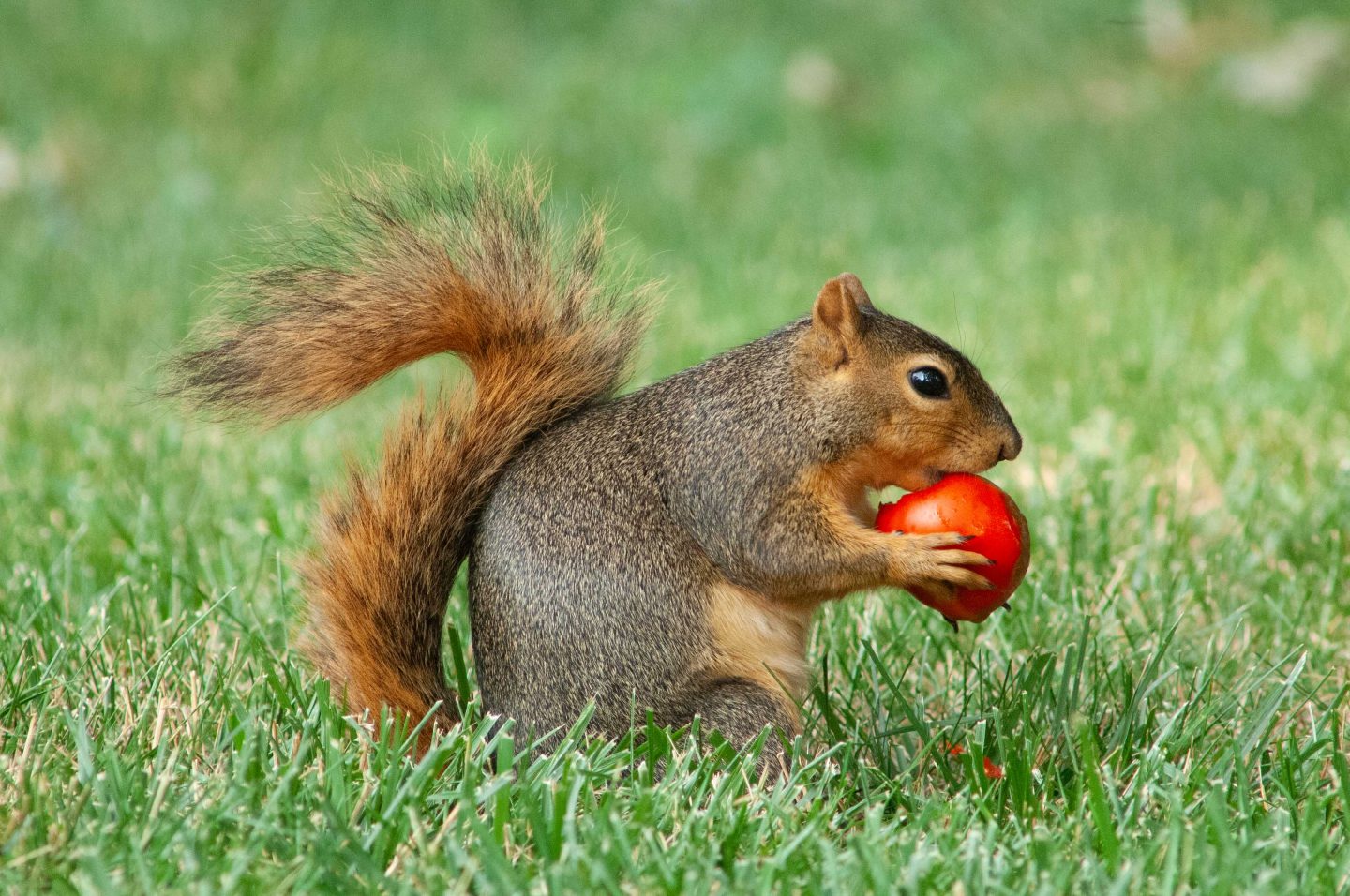
Stay On the Trail and Leave No Trace
It’s not just about avoiding poison ivy. Staying on trails helps protect fragile habitats and keeps you safe from stumbling onto a ground-nesting bird’s eggs or surprising a sunbathing snake. Nebraska is home to all kinds of reptiles and amphibians, many of which are secretive and easy to step over without realizing.
Every candy wrapper, piece of fishing line or abandoned glow stick has the potential to harm wildlife. So, pack out everything you brought in and leave your site better than you found it. That includes biodegradable waste — yes, even orange peels and sunflower seed shells.
If you’re camping with your dog, be extra mindful. Dogs can chase wildlife, trample nests or disturb dens without meaning to do so. Keeping them leashed helps protect them and your wild neighbors.
Leave Wildlife Wild
As tempting as it may be — please resist the urge to take wild animals home with you. That box turtle crossing the trail? That frog your kid found near the creek? They’re doing just fine right where they are. Wild animals belong in the wild, not in aquariums, backyards or shoeboxes.
Turtles help keep ponds clean. Frogs eat mosquitoes. Even snakes help control rodent populations. When we remove these animals from their habitats, we’re disrupting that balance — and chances are, the animal won’t thrive in captivity anyway. Most wild reptiles and amphibians have very specific needs that are hard to meet at home, even with the best of intentions.
It’s also important to know that moving wildlife around — especially reptiles and amphibians — can spread disease, such as ranavirus or the fungus that causes snake fungal disease. And depending on the species, taking certain animals from the wild may even be illegal.
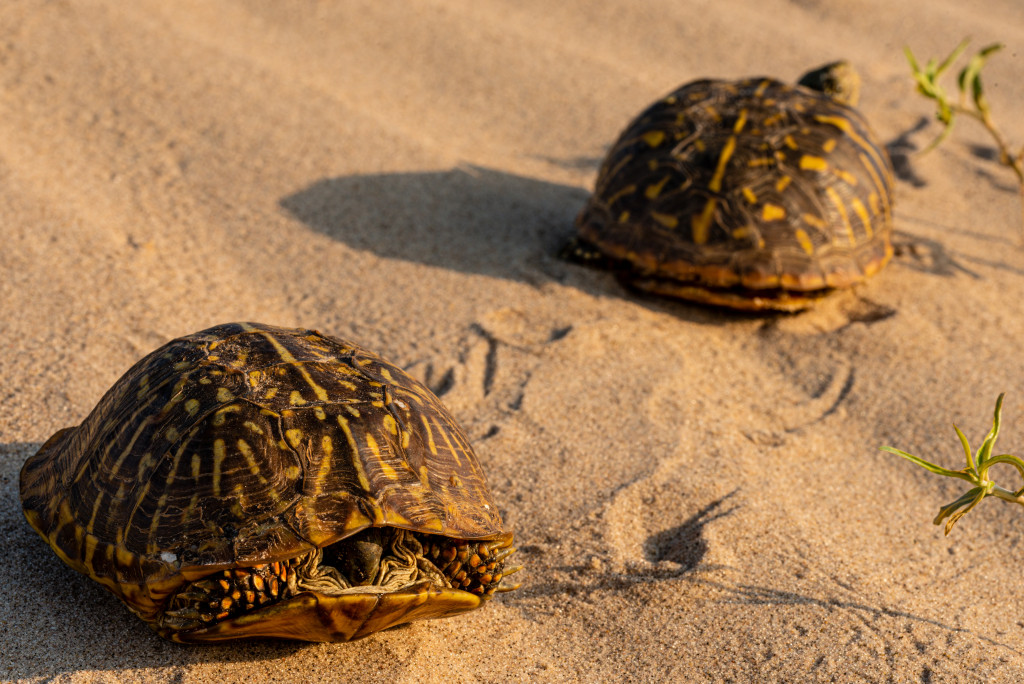
Instead, take a photo, share a story or just enjoy the moment. Teaching kids (and adults) to admire wildlife without needing to collect it helps build respect for the natural world — and ensures future campers enjoy those same wild encounters.
Soak It All In
Camping in Nebraska offers an opportunity to connect with nature on a deeper level. Whether it’s watching fireflies blink over a pond, hearing coyotes echo across the prairie or discovering tracks in the morning mud, it’s a chance to slow down and truly see the world around you. These wild moments are why we camp — and why we must camp with care.
So, the next time you’re out under the Nebraska sky, remember: You’re in someone else’s home. Be curious, be cautious and most of all, be respectful.
